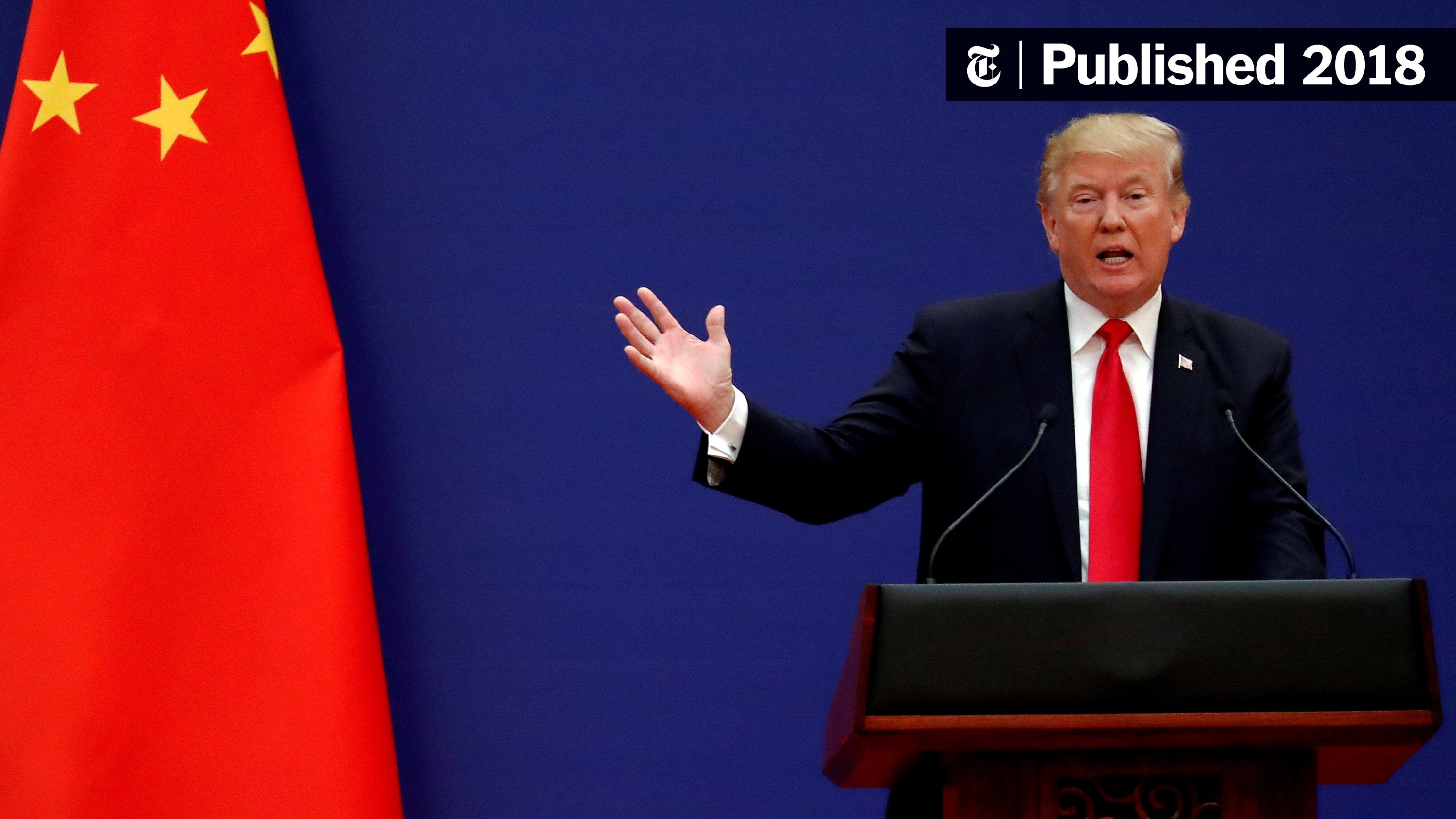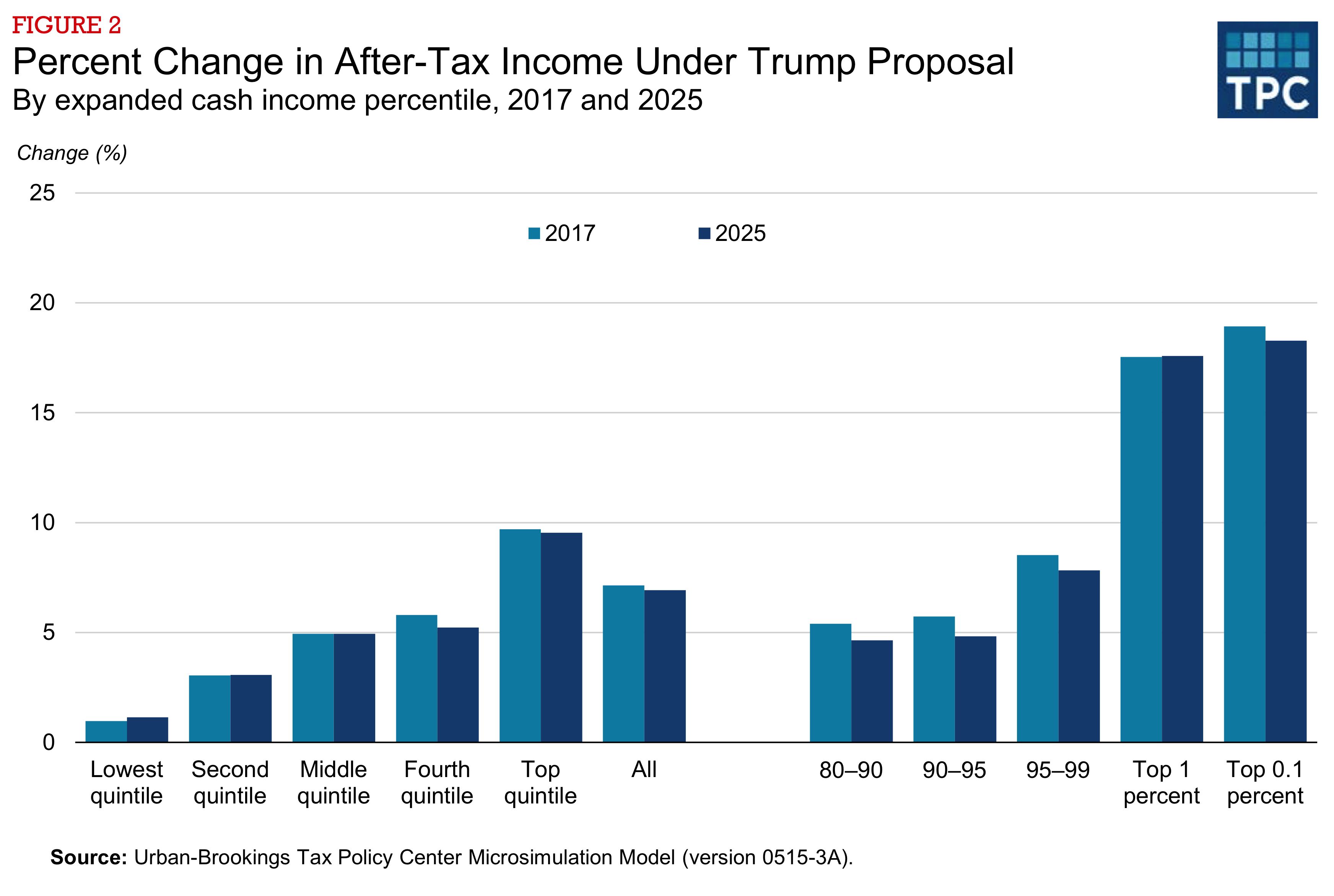Trump's Trade Wars: A Threat To US Financial Leadership

Table of Contents
Increased Uncertainty and Volatility in Global Markets
Trump's unpredictable tariffs and trade disputes created a period of significant instability for investors and businesses worldwide, severely impacting market confidence. The constant threat of new tariffs and retaliatory measures made long-term planning extremely difficult, discouraging investment and hindering growth.
- Increased market volatility: The sudden imposition of tariffs often led to sharp drops in stock markets globally, as investors reacted to the increased uncertainty. News cycles were dominated by anxieties surrounding the next trade action.
- Reduced foreign investment in the US: Uncertainty surrounding US trade policy made foreign investors hesitant to commit capital, fearing potential losses due to unexpected tariff changes or retaliatory measures from other countries.
- Negative impact on global supply chains: Disruptions to global supply chains resulted from tariffs and trade restrictions, increasing production costs and delaying deliveries. Businesses struggled to adapt to the constantly shifting landscape.
- Examples of market reactions: The trade war with China, in particular, caused significant volatility in both US and Chinese stock markets, with repeated periods of sharp gains and losses directly attributable to trade-related news.
Damage to International Alliances and Trade Relationships
Trump's trade wars severely damaged the trust and relationships the US had cultivated with key trading partners over decades. The unilateral approach to trade negotiations, characterized by aggressive tactics and a disregard for established international norms, alienated many allies.
- Deterioration of relationships with China, the EU, and others: The aggressive trade tactics employed during Trump's presidency strained relationships with major economies like China and the European Union, leading to retaliatory tariffs and a general decline in diplomatic cooperation.
- Retaliatory tariffs harming US businesses: Trading partners retaliated against US tariffs with their own, harming US businesses that relied on exports. This tit-for-tat approach resulted in a net loss for many US industries.
- Weakening of multilateral trade organizations like the WTO: The US's actions towards the World Trade Organization, including blocking appointments to key positions, weakened the organization's ability to resolve trade disputes effectively and maintain a rules-based international trading system.
- Loss of US influence in shaping global trade rules: The aggressive and unpredictable nature of Trump's trade policies diminished US influence in shaping global trade rules and norms, leaving a void that other nations are now attempting to fill.
Negative Impact on US Economic Growth and Competitiveness
The trade wars imposed significant costs on the US economy, hindering growth and damaging the long-term competitiveness of American businesses. The increased costs associated with tariffs and trade disruptions negatively impacted both businesses and consumers.
- Increased costs for businesses: Tariffs increased the cost of imported goods and raw materials, forcing businesses to either absorb the increased costs, raise prices, or reduce production.
- Reduced consumer spending: Higher prices on imported goods, resulting from tariffs, reduced consumer purchasing power and dampened overall economic growth.
- Negative impact on specific US industries: Certain sectors of the US economy, like agriculture and manufacturing, were disproportionately affected by the trade wars, experiencing job losses and reduced competitiveness.
- Loss of jobs in some sectors: While some proponents argued that tariffs would protect US jobs, the reality was that job losses occurred in certain sectors due to retaliatory tariffs and reduced export opportunities.
Erosion of the Dollar's Global Reserve Currency Status
The uncertainty created by Trump's trade policies posed a significant threat to the dollar's dominance as the world's primary reserve currency. This instability could have long-term consequences for US borrowing costs and international influence.
- Reduced confidence in the US dollar: The unpredictable nature of US trade policy reduced confidence in the dollar as a safe haven asset, prompting some countries to diversify their foreign exchange reserves.
- Increased diversification of foreign exchange reserves: Several countries began reducing their reliance on the dollar, diversifying their reserves into other currencies like the Euro, the Chinese Yuan, and the Japanese Yen.
- Potential for alternative currencies to gain prominence: The shift away from the dollar could lead to a gradual erosion of its dominance, potentially giving rise to a multipolar currency system.
- Long-term implications for US borrowing costs: A decline in the dollar's global standing could increase US borrowing costs, as lenders may demand higher interest rates to compensate for increased risk.
Conclusion
Trump's trade wars had significant negative consequences for US financial leadership, creating market volatility, damaging international relationships, hindering economic growth, and potentially undermining the dollar's global dominance. The unpredictable nature of these policies instilled uncertainty, impacting investor confidence and business decisions. The resulting damage to international alliances and the weakening of multilateral trade organizations further eroded US influence on the global stage. The long-term risks posed to the US economy and its global financial standing are considerable. Understanding the lasting effects of Trump's trade wars is crucial to safeguarding US financial leadership in the future. Further research into the complexities of international trade and the potential consequences of protectionism is essential.

Featured Posts
-
 Saudi Aramco And Byd Partner To Develop Innovative Ev Technologies
Apr 22, 2025
Saudi Aramco And Byd Partner To Develop Innovative Ev Technologies
Apr 22, 2025 -
 Sag Aftra Joins Wga On Strike What It Means For Hollywood
Apr 22, 2025
Sag Aftra Joins Wga On Strike What It Means For Hollywood
Apr 22, 2025 -
 Trump Supporter Ray Epps Defamation Lawsuit Against Fox News Jan 6th Falsehoods
Apr 22, 2025
Trump Supporter Ray Epps Defamation Lawsuit Against Fox News Jan 6th Falsehoods
Apr 22, 2025 -
 New 1 Billion Cut Proposed Trump Administrations Continued Dispute With Harvard
Apr 22, 2025
New 1 Billion Cut Proposed Trump Administrations Continued Dispute With Harvard
Apr 22, 2025 -
 Google And Doj Return To Court Battle Over Search Monopoly Heats Up
Apr 22, 2025
Google And Doj Return To Court Battle Over Search Monopoly Heats Up
Apr 22, 2025
